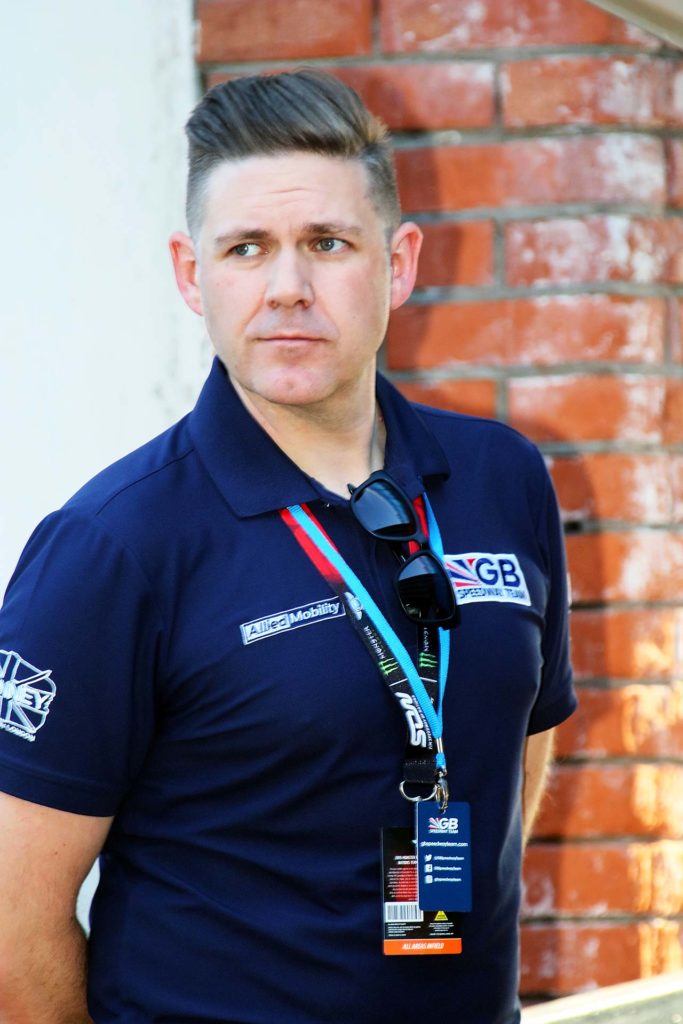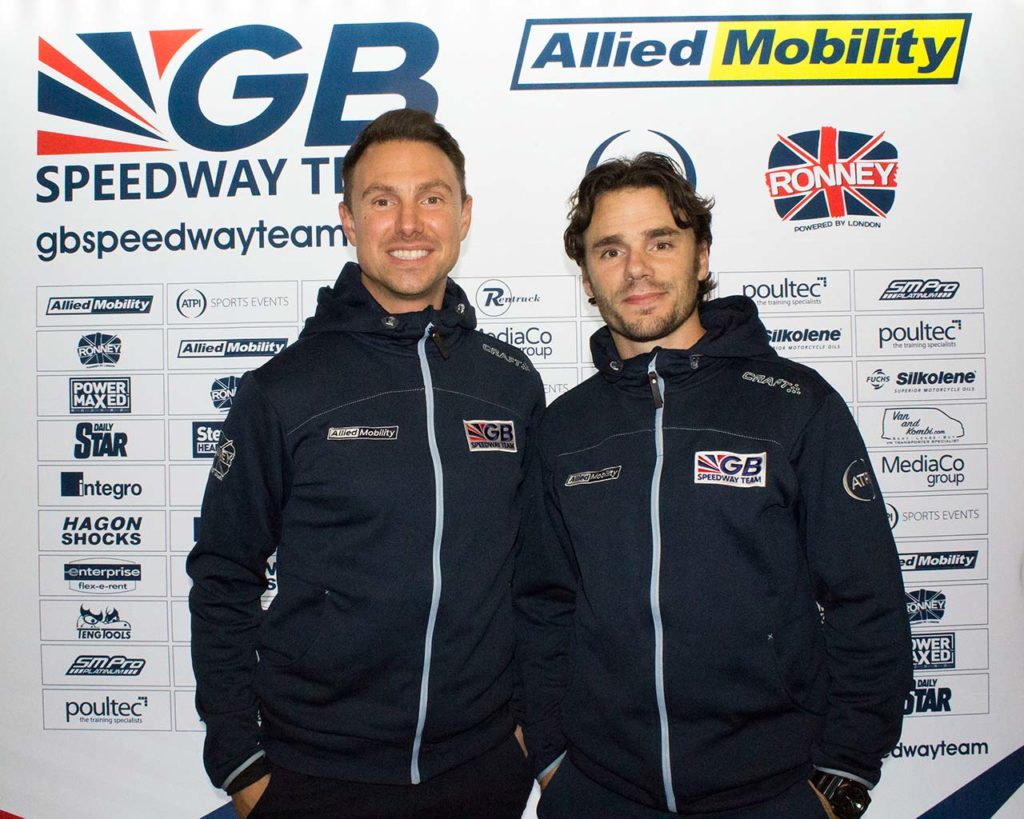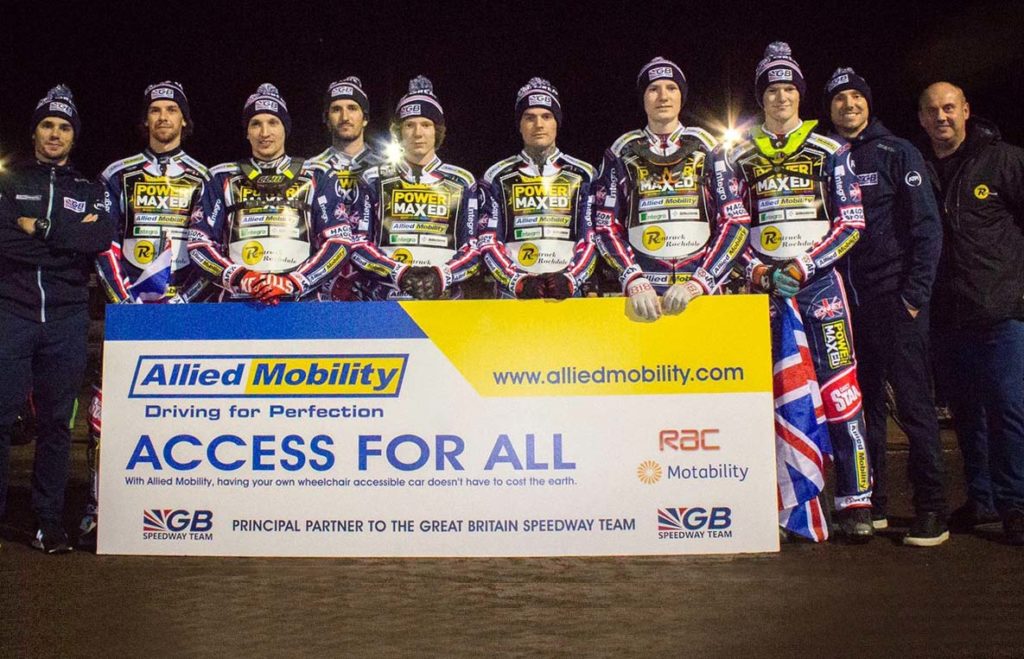Destined for success
By Graeme Sinden
While Speedway solo riders all over the World push themselves to the limit for individual success to perhaps claim the ultimate prize of becoming individual World Speedway Champion, Great Britain have embarked on an ambitious and dedicated plan to Improve their status and success in the coveted ‘Speedway of Nations’ competition.
The ‘Speedway of Nations’ is an annual Speedway event held each year in different countries. The first edition of the competition in the current format took place in 2018, replacing the Speedway World Cup on the international calendar.
I caught up with Mr. Rob Painter, Managing Director of the ‘Great Britain Speedway Team’ set up and asked how the concept of ‘Great Britain Speedway Team’ came together.

Rob said, “I have worked professionally in Speedway for more than 20 years. I have always been passionate about the sport and always wanted to see Great Britain reach a high level of success. Great Britain has a long and proud Speedway history and has always had a National Team. I believed more could be done to maximise on track results for our riders and the Team while at the same time promote British Speedway.
“Speedway is very much an individual sport, individual riders racing under the same banner but still individuals. We are working to challenge that and develop a performance culture, to create a genuine pathway from our newly launched GB Academy, to our GB U21’s and into the senior GB Team. We are working very hard to create a full time National Team with far more rider/management contact time than ever before.”
In his younger days, Rob Painter raced Speedway solos. While he enjoyed some success, he soon realised he wasn’t destined to be a great rider and turned his focus to other areas.
“Australian rider Jason Crump asked me to join him and I sold my bikes and worked professionally as a mechanic. I was fortunate to work with some of the best riders of that generation. Apart from Jason, I worked alongside Nicki Pederson and Scott Nicholls. It was excellent experience in understanding what it took to win and be successful.
“I had always been interested in all forms of Motorsport, it intrigued me how teams existed in other forms of Motorsport but not in Speedway, so my partner Vicky Blackwell and I set up ‘Revolution Speedway’, which was the first professional independent race team in Speedway. We even obtained the first ever FIM Team License in Speedway, like you would have if you were a MotoGP team.
“We grew the race team over a number of years and had success with our riders on the podium of the British Championship. We also took riders to the Grand Prix Challenge and 250cc World Championship. In 2017 we began researching the Great Britain Speedway Team and identifying areas it could be further developed and 2018 was our first year in charge.”
I asked Rob who were the other people involved in the current Management Team of the Great Britain Speedway Team (GBST).
“There are approximately 20 people involved with the management team in various levels. The group bring a great deal of expertise in many areas including, performance, technical, physical, psychological, nutrition, marketing and commerce.
“We carefully selected people for specific management roles (some of whom we had previously worked with) all of which are highly respected experts within their respective fields and who share the same level of passion and enthusiasm for driving the Great Britain Speedway Team. Not all positions are full time positions, but they all have an important role to play and are integral to the management team function.”

I asked Rob what the Management Teams Goals and Objectives were for ‘GBST’?
“The goal is for Great Britain to be the best prepared National Team in World Speedway and to have long term, sustainable medal winning success. Our strategic plan is well structured and documented with clear plans on how we intend to achieve our goals, but clearly, I can’t divulge too much about this.
“While there is no specific time frame to achieve our objectives, we are totally focused on our younger generation of riders so it will take time for the benefits of the system to be fully developed and realised. Our riders are judged and tested physically and mentally, plus of course their on-track results are monitored and assessed. It is important to note though, that on track performance is only a small part of our rider selection criteria. We have won 3 Team World Championship medals out of a possible 4 in the last two years which is a positive step forward.”
I asked Rob how the GBST project was funded and if he could provide some sort of annual operational budget.
“Clearly I can’t provide the annual operational budget figure; however, I can say we are 100% funded by commercial partnerships and receive no funding from our Federation, government, lottery or other organisations. When racing for Great Britain, riders have 100% of their expenses covered and are paid performance related pay through prize and or points money. We supply all Great Britain branded items such as race suits, bike covers, clothing training kit etc. We have also established several very good commercial partnerships with suppliers and are able to pass on the benefits of this to GB squad members.”
Wanting to know more about their team training, I asked Rob what sort of rider training and skills development training is provided?
“The GB programme is called ‘Tracking Success’. We look to develop the rider’s skill set across the board. We have broken this down and focus on 4 key areas, which is Physical, Mechanical, Mindset & Team identity, Technical & Tactical – each time the rider group comes together. We have had two pre-season performance camps in the UK, and we currently have online sessions for the rider group every two weeks. We expect all riders to be fully committed, dedicated and respectful. We also have our team expectations that they understand and follow. It’s obviously a bigger change for our senior riders who have been involved with Great Britain for a longer period and have seen how the setup has been in previous years. The feedback we receive from this group is excellent and they can definitely see the fantastic opportunities the younger riders now have.”
Can you expand on what you do to develop the team’s Performance culture?
“Jeremy Holt is our Performance Psychologist and lead when it comes to performance culture and identity. Jeremy has experience working with high performance teams across many different sectors in sport including ‘Sport and the Military’. It isn’t my area of expertise so I wouldn’t want to go into detail.
“Over the past 3 years a privately funded organisation called ‘No Limits’ has delivered a training programme for young British riders. This organisation was led by Ian Sinderson, Rob Lyon and Rory Schlein. They have done fantastic work in that time and we have transitioned ‘No Limits’ into the GB Academy under our banner and added some new members to the management team.”
Just to put the Great Britain Speedway Team into perspective, I thought I would give you an idea of the individuals involved, along with their roles within the organisation. I remind you that not all people and positions are full time within the Team, but all play a significant part in the Teams development.
Great Britain Management Team & Support Staff
- Rob Painter Managing Director
- Vicky Blackwell Marketing Director
- Olly Allen Team Manager
- Simon Stead Team Manager
- Neil Vatcher Under 21 Team Manager
- Chris Neville Performance Specialist
- Jeremy Holt Performance Psychologist
- Paul Suggitt Fitness Specialist
- Steve Williams Physiotherapist
- Josh Gudgeon Communications Director
- Phil Lanning Media Consultant
- David Rowe Tactical Analyst
- Dave Curtis Design Consultant
- Darren Bott Brand Consultant
- Ian Hewlett Corporate Hospitality & Merchandising Manager
- Anita Dennington Events Coordinator
- Taylor Lanning Photographer
Great Britain’s triple World Champion Tai Woffinden
“These kids are strides in front of me as far as knowledge at their age. That only goes to show the future has to be positive for GB. Everything that’s happening with the whole set up is right. Chris Neville with his experience in nutrition, fitness, recovery, sleep and all that stuff is invaluable. When I was Drew Kemps age, I didn’t have all that stuff. It was just me and my dad driving out to Sweden and Poland. The future looks very positive for GB. I’m delighted to see the GB Academy is now formed, its long overdue.”
Italian FIM Track Director, Armando Castagna
“I have a very good relationship with Great Britain Speedway Team, Managing Director, Rob Painter and Marketing Director, Vicky Blackwell. They have proved and shown the Speedway World how to run a team professionally and how it should be done, in my opinion. They know how to organise things. I saw this last year at the World Under 21 Team Final in Manchester, it was a shock to see just how good their set up was for Great Britain. They have a good backroom team put together, very professional people and I like the way they go about their business. Every country and Federation should learn to act on how to present their team like Great Britain.”
Castagna was also quick to acknowledge the new Great Britain Academy.
“The youth set ups in other countries like Poland and Denmark have been very strong for a few years. I am delighted with the proper structure Great Britain have installed. I think they can become a bigger team force in years to come.
The Great Britain Management Team and support staff behind Great Britain Speedway Team, are more reminiscent of a Formula One or a Moto GP Team set up, not something we generally associate with Speedway racing.
The budgets for these two high-profile sports are huge and perhaps can be more easily justified, however if Speedway is to keep pace, develop riders and the sport to ensure we don’t fall through the cracks, it’s certainly worth considering.
Speedway needs to continue to provide spectators with high value entertainment, attract corporate sponsorship and grab the attention of the World’s media. With Great Britain’s bold initiative to be the best prepared National Team in the World and have sustainable success, this might well be the standard other Nations need to adopt for the long-term viability of the sport.
























